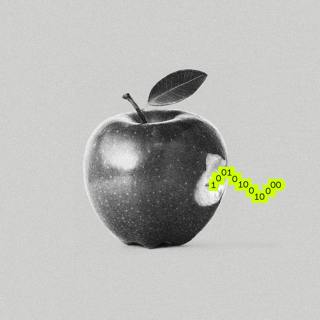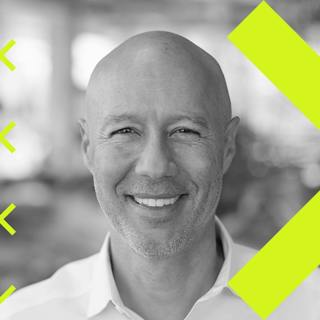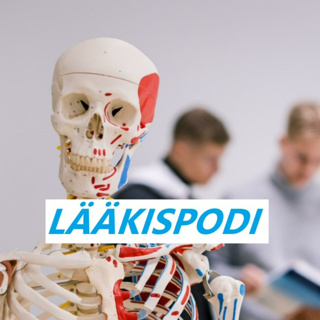
The DoorDash Problem: How AI browsers are a huge threat to Amazon
Okay, let’s talk about AI and what I’ve been calling the “DoorDash problem.” This is about to define the next battle in AI, and it might completely transform not only how you order a sandwich, but also how the entire internet economy works in general. If you’ve been listening to the show this past year, you’ve heard me bring up the Doordash problem nearly a dozen times. I’ve been asking CEOs and leaders in tech and AI about it any chance I can get. Now, a lawsuit between Amazon and Perplexity is bringing this exact issue to the forefront, kicking off a major AI browser fight that could define the future of agents and the web itself. Links: Amazon and Perplexity have kicked off the great AI web browser fight | The Verge Amazon sues to stop Perplexity from using AI tool to buy stuff | Bloomberg Amazon's Cease and Desist letter to Perplexity | Amazon Bullying Is not innovation | Perplexity Amazon gets hit by a Comet | Platformer Humans Only! Why Amazon doesn’t want AI shoppers | NY Mag Amazon vs Perplexity: the AI agent war has arrived | The Guardian Amazon ad revenue soars 24 percent to $17.7 billion | THR Subscribe to The Verge to access the ad-free version of Decoder! Credits: Decoder is a production of The Verge and part of the Vox Media Podcast Network. Decoder is produced by Kate Cox and Nick Statt and edited by Ursa Wright. Our editorial director is Kevin McShane. The Decoder music is by Breakmaster Cylinder. Learn more about your ad choices. Visit podcastchoices.com/adchoices
20 Marras 202530min

Ring's Jamie Siminoff thinks AI can reduce crime
Jamie Simonoff, founder of Ring, won't let me call him the CEO. He says his title is and always has been 'chief inventor.' His mission with Ring is to make the world safer, and he has a pretty expansive view of what that means. He told The Verge last month he thought Ring could 'almost zero out crime' in some neighborhoods within a year or two. That's a big promise — and also potentially a very troubling one, as we face the erosion of privacy and a surveillance panopticon that only ever seems to expand. Read the full interview transcript on The Verge. Links: Ring CEO: Cameras can almost ‘zero out crime’ within 12 months | The Verge Ring plans to scan everyone’s face at the door | The Washington Post Ring’s Search Party is on by default; should you opt out? | The Verge Ring now works with video surveillance company Flock | The Verge US spy agencies getting a one-stop shop to buy personal data | The Intercept Do Video Doorbells Really Prevent Crime? | Scientific American Ding Dong: How Ring went from Shark Tank Reject to Everyone’s Front Door | Amazon Subscribe to The Verge to access the ad-free version of Decoder! Credits: Decoder is a production of The Verge and part of the Vox Media Podcast Network. Our producers are Kate Cox and Nick Statt. Our editor is Ursa Wright. The Decoder music is by Breakmaster Cylinder. Learn more about your ad choices. Visit podcastchoices.com/adchoices
17 Marras 20251h 10min

The company at the heart of the AI bubble
So a lot of people think AI is a bubble. So we sent Verge senior reporter Liz Lopatto out to report on the AI bubble — whether it's real, how it might pop, and what all of this means.She’s joining the show today to talk about a particular company that sits right in the middle of all of it. That company is called CoreWeave, and Liz has spent considerable time diving into its history, its financials, and the truly fascinating story that all of that tells us about the modern AI boom. Links: CoreWeave CEO plays down concerns about AI-spending bubble | WSJ Why debt funding is ratcheting up the risks of the AI boom | NYT Inside the data centers that train AI and drain the electrical grid | The New Yorker How a crypto miner transformed Into the multibillion-dollar backbone of AI | Wired CoreWeave signs $14 billion AI infrastructure deal with Meta | Reuters CoreWeave, Nvidia sign $6.3 billion cloud computing capacity order | Reuters Nvidia turned CoreWeave into major player in AI years before saving its IPO | CNBC CoreWeave inks $6.5 billion deal with OpenAI | CNBC ‘Project Osprey:’ How Nvidia seeded CoreWeave’s rise | The Information For this startup, Nvidia GPUs are currency | The Verge Subscribe to The Verge to access the ad-free version of Decoder! Credits: Decoder is a production of The Verge and part of the Vox Media Podcast Network. Decoder is produced by Kate Cox and Nick Statt and edited by Ursa Wright. Our editorial director is Kevin McShane. The Decoder music is by Breakmaster Cylinder. Learn more about your ad choices. Visit podcastchoices.com/adchoices
13 Marras 202537min

Sir Tim Berners-Lee doesn’t think AI will destroy the web
Today, I’m talking with a very special guest: Sir Tim Berners-Lee, the inventor of the World Wide Web. Tim is a legend in the history of the internet. He created HTML and HTTP. It doesn’t really get more foundational than that — Tim was there at the very very beginning of the modern internet. He also has a new memoir out called This Is For Everyone: The Unfinished Story of the World Wide Web. So Tim joined the show to talk about the state of the web, as well as his current work at the decentralization startup Inrupt, and, of course, where AI fits into the conversation. Read the full interview on The Verge. Links: This Is For Everyone | Macmillan The Semantic Web | W3C Tim Berners-Lee invented the web, now wants to save it | The New Yorker Why I gave the world wide web away for free | The Guardian Amazon, Perplexity kick off the great AI web browser fight | The Verge Web War III | The Verge Google admits the open web is in ‘rapid decline’ | The Verge Cloudflare will now block AI crawlers by default | The Verge Subscribe to The Verge to access the ad-free version of Decoder! Credits: Decoder is a production of The Verge and part of the Vox Media Podcast Network. Decoder is produced by Kate Cox and Nick Statt and edited by Ursa Wright. Our editorial director is Kevin McShane. The Decoder music is by Breakmaster Cylinder. Learn more about your ad choices. Visit podcastchoices.com/adchoices
10 Marras 202555min

How AI is fueling an existential crisis in education
We keep hearing over and over that generative AI is causing massive problems in education, both in K-12 schools and at the college level. Lots of people are worried about students using ChatGPT to cheat on assignments, and that is a problem. But really, the issues go a lot deeper, to the very philosophy of education itself. We sat down and talked to a lot of teachers — you’ll hear many of their voices throughout this episode — and we kept hearing one cri du coeur again and again: What are we even doing here? What’s the point? Links: Majority of high school students use gen AI for schoolwork | College Board Quarter of teens have used ChatGPT for schoolwork | Pew Research Your brain on ChatGPT | MIT Media Lab My students think it’s fine to cheat with AI. Maybe they’re on to something. | Vox How children understand & learn from conversational AI | McGill University ‘File not Found’ | The Verge Subscribe to The Verge to access the ad-free version of Decoder! Credits: Decoder is a production of The Verge and part of the Vox Media Podcast Network. Our producers are Kate Cox and Nick Statt. Our editor is Ursa Wright. The Decoder music is by Breakmaster Cylinder. Learn more about your ad choices. Visit podcastchoices.com/adchoices
6 Marras 202539min

Lyft CEO David Risher on paying drivers more and the shift to robotaxis
David Risher was on Lyft's board for years, but only stepped in as CEO in 2023, to help turn the company around. He's done pretty well so far, but there are still a lot of open questions for him to face. It's not just competition for riders and drivers Lyft has to deal with; it’s the future of transportation itself, and new AI tools that might take apps like Lyft out of the equation entirely. Links: Lyft’s first ‘robotaxis’ are live in Atlanta | The Verge Tensor robocar will be “Lyft ready” out of the factory | Engadget Congrats, Lyft | The Verge Lyft’s AI assistant offers drivers advice on how to make money | The Verge Lyft gets toehold in Europe with FreeNow acquisition | The Verge Lyft co-founders to step down as company struggles | New York Times How Silicon Valley enshittified the internet | Decoder Subscribe to The Verge to access the ad-free version of Decoder! Credits: Decoder is a production of The Verge and part of the Vox Media Podcast Network. Our producers are Kate Cox and Nick Statt. Our editor is Ursa Wright. The Decoder music is by Breakmaster Cylinder. Learn more about your ad choices. Visit podcastchoices.com/adchoices
3 Marras 20251h 18min

How Silicon Valley enshittified the internet
This is Sarah Jeong, features editor at The Verge. I’m standing in for Nilay for one final Thursday episode here as he settles back into full-time hosting duties. Today, we’ve got a fun one. I’m talking to Cory Doctorow, prolific author, internet activist, and arguably one of the fiercest tech critics writing today. He has a new book out called Enshittifcation: Why Everything Suddenly Got Worse and What to Do About It. So I sat down with Cory to discuss what enshittification is, why it’s happening, and how we might fight it. Links: Enshittification | Macmillan Why every website you used to love is getting worse | Vox The age of Enshittification | The New Yorker Yes, everything online sucks now — but it doesn’t have to | Ars Technica The enshittification of garage-door openers reveals vast, deadly rot | Cory Doctorow Mark Zuckerberg emails outline plan to neutralize competitors | The Verge Google gets to keep Chrome, judge rules in antitrust case | The Verge How Amazon wins: by steamrolling rivals and partners | WSJ A new web DRM standard has security researchers worried | The Verge Netflix, Microsoft & Google just changed how the web works | The Outline Subscribe to The Verge to access the ad-free version of Decoder! Credits: Decoder is a production of The Verge and part of the Vox Media Podcast Network. Our producers are Kate Cox and Nick Statt. Our editor is Ursa Wright. The Decoder music is by Breakmaster Cylinder. Learn more about your ad choices. Visit podcastchoices.com/adchoices
30 Loka 20251h 9min

LexisNexis CEO says the AI law era is already here
LexisNexis is one of the most important companies in the entire legal system. For ages it's been where you went to look up case law and do legal research. There isn’t a lawyer today who hasn’t used it — it’s fundamental infrastructure for the legal profession, just like email or a word processor. But in 2025, apparently nobody can resist the siren call of AI, and LexisNexis is no different. The first word Sean said to describe LexisNexis wasn’t “law” or “data,” it was “AI.” And I had questions, because so far AI has created just as much chaos and slop in the courts as anywhere else. Read the full transcript on The Verge. Links: Errors found in judge’s withdrawn decision stink of AI | The Verge Why do lawyers keep using ChatGPT? | The Verge Conservative judge says AI could strengthen originalist movement | Reuters LexisNexis CEO says it’s ‘a matter of time’ before attorney loses a license | Fortune Two companies ruled legal tech for decades. AI is blowing that open | BI Credits: Decoder is a production of The Verge and part of the Vox Media Podcast Network. Our producers are Kate Cox and Nick Statt. Our editor is Ursa Wright. The Decoder music is by Breakmaster Cylinder. Learn more about your ad choices. Visit podcastchoices.com/adchoices
27 Loka 20251h 5min






















